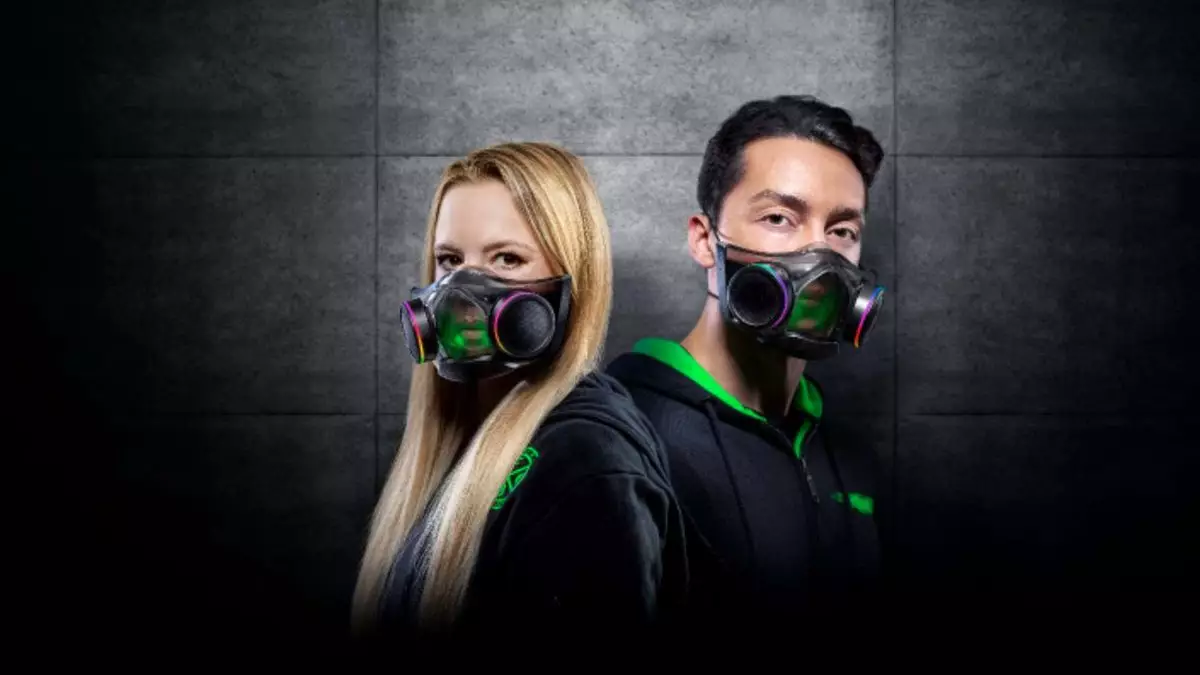The release of the Razer Zephyr mask epitomized a growing trend in consumer products that combine style with function—a mask that illuminated with RGB lighting while purporting to deliver high-level protection against airborne pathogens during the height of the COVID-19 pandemic. Sporting a sleek design and a fashionable black colorway, the Razer Zephyr appealed to a generation more accustomed to techware than traditional protective gear. However, behind the mask’s cool facade lay a troubling narrative of misleading marketing and eventual legal consequences that serve as a cautionary tale for both consumers and companies alike.
Initially marketed with the promise of “N95 Filters,” the Zephyr mask led many to mistakenly assume it provided protection equivalent to that of an N95 mask. This misconception was compounded by Razer’s lackadaisical approach to consumer education. The wake-up call came only after the company faced scrutiny; they promptly added disclaimers clarifying that the Zephyr was “not a medical device nor certified as an N95 mask.” Such an admission not only diluted the mask’s appeal but also highlighted a significant gap in corporate transparency—a gap that many consumers unfortunately fell through.
Moreover, it is pertinent to mention that the mask was available for purchase only during the first half of 2022, leaving a limited timeframe for consumers to make informed decisions. Razer’s efforts to mitigate concerns about the mask, including vague claims about its filtration capabilities, ultimately fell short. This absence of certified efficacy points to a concerning trend in the tech consumer market where marketing acumen appears to overshadow ethical responsibility.
Fast forward to April 2024, when the Federal Trade Commission (FTC) stepped in, suing Razer for its deceptive advertising practices. The company eventually agreed to a substantial settlement, which comprised a $100,000 fine and an additional $1,071,254 allocated for “consumer relief.” This settlement is particularly noteworthy, as it prompted a wave of refunds, with the FTC notifying over 6,700 customers who had purchased the mask. However, while the intention to refund was there, the execution was marred by complexities that left many consumers feeling frustrated.
As outlined in the FTC’s lawsuit, Razer’s refund policy was anything but accommodating. Restitution efforts turned out to be ineffective, as less than 6% of U.S. purchases related to the Zephyr mask were refunded. Moreover, numerous customers reported being denied refunds outright by Razer’s customer service representatives, citing reasons that seemed arbitrary or implausible, such as having used the mask. Such experiences have left a bitter aftertaste among consumers, who were not only misled about the product but also denied proper recourse once they discovered the truth.
The case of the Zephyr mask is emblematic of a broader concern: the demand for durable protective gear as we continue to navigate the ongoing risks presented by viruses and pollutants. As someone who regularly employs various forms of masks for protection, the disillusionment that accompanies Razer’s miscalculated venture is disheartening. The desire for a dependable and stylish mask is palpable; brands that manage to marry practical design with effective filtration solutions are not just preferred, but essential.
Razer’s folly not only tarnished its reputation but also underscored the importance of transparent communication with consumers. The tech company’s ambitious foray into the healthcare space without a corresponding commitment to safety standards proved costly—not just in financial terms but also in trust. Consumers today deserve honesty and accountability, particularly when their health hangs in balance.
In the end, the saga surrounding the Razer Zephyr mask acts as a stark reminder of the consequences that arise from misleading marketing. Companies must adhere to ethical practices and prioritize consumer education when launching products, particularly in health-related categories. For consumers, the experience serves as an essential lesson—always scrutinize the claims behind the products that safeguard your health. As we move towards an increasingly complex marketplace, vigilance and informed decision-making will be paramount in protecting both our health and our trust in brand promises.

